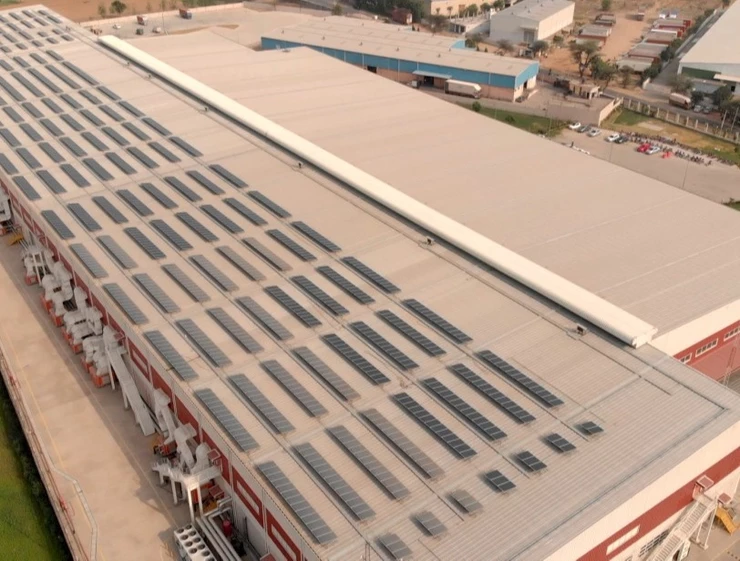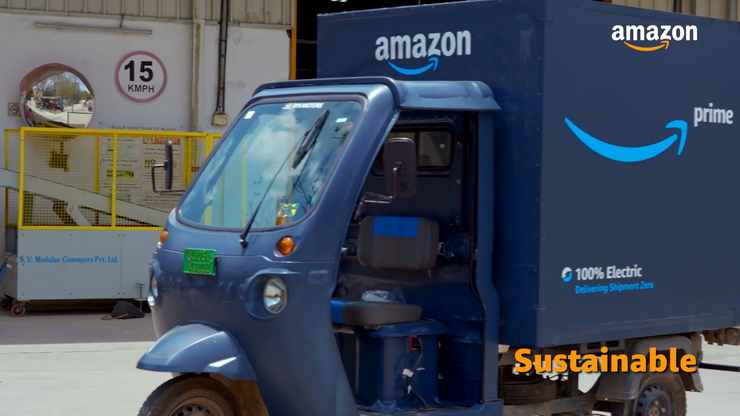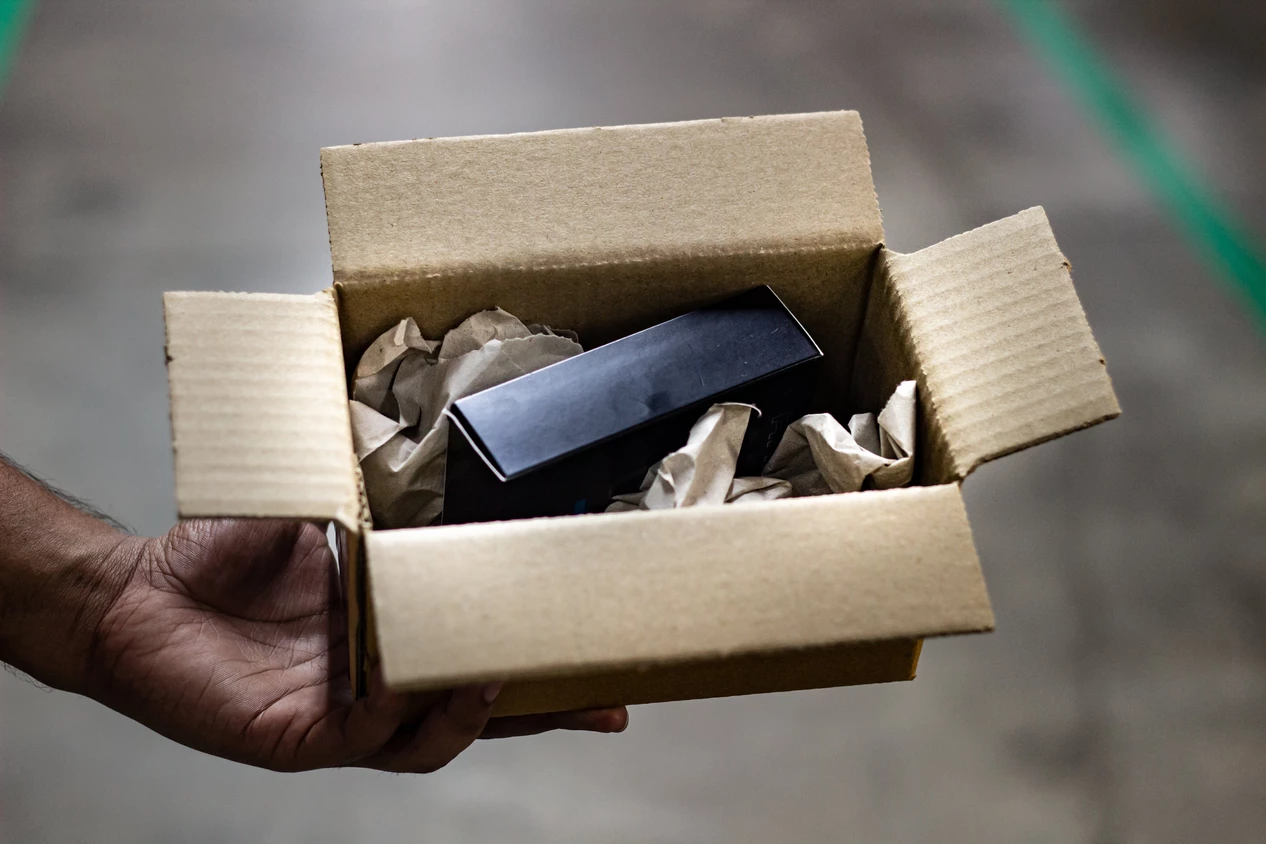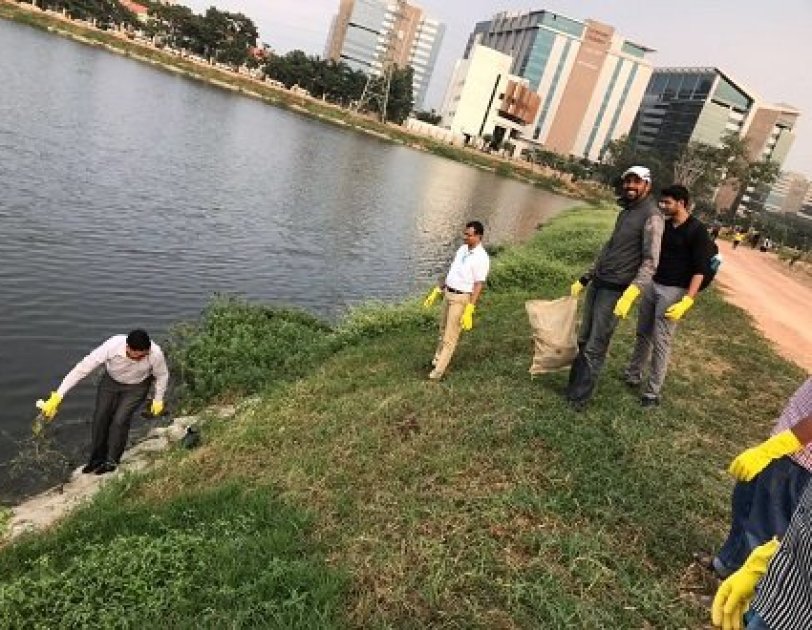UN Energy Compacts | India – Global Theme Champion for Energy Transition
25 June 2021
By Amazon India @amazonIN
In 2019, Amazon co-founded The Climate Pledge – a commitment to be net-zero carbon across our business by 2040, 10 years ahead of the Paris Agreement. As part of this pledge — now signed by over 100 global signatories — Amazon has made ambitious commitments, including:
Amazon India’s infrastructure footprint comprises over 60 Fulfilment Centres across 15 states, two Amazon Web Services (AWS) Regions across two states, Sort Centres across 19 states, and a network of 1,700 Amazon and/or partner-operated delivery stations, as well as our multiple corporate offices. Our commitment to fulfilling our net carbon neutrality goals in India includes initiatives in renewable energy, water sustainability, electric mobility, sustainable packaging, and building awareness through community engagement.
In India, Amazon has installed solar rooftops on eight Fulfilment Centres and five Sort Centres, which together produce a total of nearly 12 MW onsite solar power.
We are pursuing opportunities for utility-scale offsite renewable projects as well. We have implemented advanced energy management systems that enable energy optimisation and sensors that ensure lighting and climate controls are only used when buildings are occupied.

Amazon’s initiatives in India includes installations of large-scale solar panel systems at 8 Fulfilment Centres and 2 Sortation Centres. Photo: Amazon
Similarly, our AWS cloud infrastructure is designed to be more efficient at both the server and facility level, which translates into considerably less energy used to perform the same unit of work. By moving their workloads from on-premises data centre infrastructure to the AWS cloud, our Indian customers are able to reduce their carbon footprint significantly.
On electric mobility, Amazon India has committed to include 10,000 electric vehicles in its delivery fleet by 2025 and is an integral milestone in our decarbonisation journey.
We have been working with several Indian OEMs to build a fleet of vehicles that ensure sustainable and safe deliveries of customer orders and will continue to explore opportunities with OEMs to further expand our fleet.

In January 2020, during Jeff Bezos’ visit to India, Amazon India announced its commitment to include
10,000 electric vehicles in its delivery fleet by 2025. Photo: Amazon
Amazon India Operations has introduced several sustainable packaging efforts over the last year including India-first initiatives like Packaging-Free Shipping (PFS) and the elimination of 100% single-use plastic in packaging from Fulfilment Centres. In 2020, we expanded our packaging-free shipping initiative to more than 100 cities across India and announced that we have eliminated the use of single-use plastic in packaging originating from our 60-plus Fulfilment Centres.

In June 2020, Amazon India announced that it has eliminated 100% single-use plastic in packaging originating from its 60+ Fulfilment Centres. Photo: Amazon
As part of our commitment to conserve and reuse water, we have implemented multiple initiatives to eliminate, reduce and reuse water across our operations. These include conserving local drinking water resources by using air cooling instead of water cooling at our AWS data centres, collecting and recycling water through rainwater collection tanks, replenishing water into aquifers from recharge wells, implementation of waterless urinals across sites located in water-stressed regions and in-house sewage treatment plants that enable reuse of water for flushing and gardening across our Fulfilment Centres.
Amazon India is also working to expand sustainability and clean energy beyond our own premises, by donating solar energy systems to 19 government schools and one mini planetarium in Bhiwandi, Maharashtra. This infrastructure supports the needs of children in schools and other members of local communities in 24 villages across Haryana and Maharashtra. In addition, Amazon partnered with local organizations and engaged Amazon volunteers to construct a sewage treatment plant in Bangalore to support the clean-up of Mahadevpura Lake. Amazon India is also planting more than 10,000 saplings around our Indian Fulfilment Centres as part of our reforestation efforts.

Amazon India teamed up with the BBMP and United Way Bengaluru to clean Mahadevpurab Lake. Photo: Amazon
25 June 2021
By Amazon India @amazonIN
In 2019, Amazon co-founded The Climate Pledge – a commitment to be net-zero carbon across our business by 2040, 10 years ahead of the Paris Agreement. As part of this pledge — now signed by over 100 global signatories — Amazon has made ambitious commitments, including:
Amazon India’s infrastructure footprint comprises over 60 Fulfilment Centres across 15 states, two Amazon Web Services (AWS) Regions across two states, Sort Centres across 19 states, and a network of 1,700 Amazon and/or partner-operated delivery stations, as well as our multiple corporate offices. Our commitment to fulfilling our net carbon neutrality goals in India includes initiatives in renewable energy, water sustainability, electric mobility, sustainable packaging, and building awareness through community engagement.
In India, Amazon has installed solar rooftops on eight Fulfilment Centres and five Sort Centres, which together produce a total of nearly 12 MW onsite solar power.
We are pursuing opportunities for utility-scale offsite renewable projects as well. We have implemented advanced energy management systems that enable energy optimisation and sensors that ensure lighting and climate controls are only used when buildings are occupied.

Amazon’s initiatives in India includes installations of large-scale solar panel systems at 8 Fulfilment Centres and 2 Sortation Centres. Photo: Amazon
Similarly, our AWS cloud infrastructure is designed to be more efficient at both the server and facility level, which translates into considerably less energy used to perform the same unit of work. By moving their workloads from on-premises data centre infrastructure to the AWS cloud, our Indian customers are able to reduce their carbon footprint significantly.
On electric mobility, Amazon India has committed to include 10,000 electric vehicles in its delivery fleet by 2025 and is an integral milestone in our decarbonisation journey.
We have been working with several Indian OEMs to build a fleet of vehicles that ensure sustainable and safe deliveries of customer orders and will continue to explore opportunities with OEMs to further expand our fleet.

Amazon India Operations has introduced several sustainable packaging efforts over the last year including India-first initiatives like Packaging-Free Shipping (PFS) and the elimination of 100% single-use plastic in packaging from Fulfilment Centres. In 2020, we expanded our packaging-free shipping initiative to more than 100 cities across India and announced that we have eliminated the use of single-use plastic in packaging originating from our 60-plus Fulfilment Centres.

In June 2020, Amazon India announced that it has eliminated 100% single-use plastic in packaging originating from its 60+ Fulfilment Centres. Photo: Amazon
As part of our commitment to conserve and reuse water, we have implemented multiple initiatives to eliminate, reduce and reuse water across our operations. These include conserving local drinking water resources by using air cooling instead of water cooling at our AWS data centres, collecting and recycling water through rainwater collection tanks, replenishing water into aquifers from recharge wells, implementation of waterless urinals across sites located in water-stressed regions and in-house sewage treatment plants that enable reuse of water for flushing and gardening across our Fulfilment Centres.
Amazon India is also working to expand sustainability and clean energy beyond our own premises, by donating solar energy systems to 19 government schools and one mini planetarium in Bhiwandi, Maharashtra. This infrastructure supports the needs of children in schools and other members of local communities in 24 villages across Haryana and Maharashtra. In addition, Amazon partnered with local organizations and engaged Amazon volunteers to construct a sewage treatment plant in Bangalore to support the clean-up of Mahadevpura Lake. Amazon India is also planting more than 10,000 saplings around our Indian Fulfilment Centres as part of our reforestation efforts.

Amazon India teamed up with the BBMP and United Way Bengaluru to clean Mahadevpurab Lake. Photo: Amazon